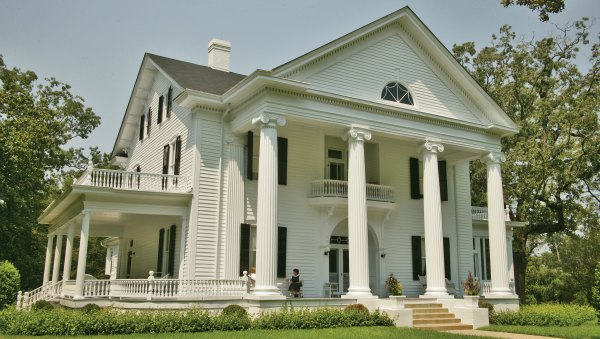Tom Watson Brown was an icon of the Southern tradition and one of its strongest defenders. He was a respected attorney, businessman, civic leader, philanthropist, and, in addition, a very learned man who possessed a library of over 10,000 volumes. He graduated magna cum laude from Princeton with a degree in history, and studied law at Harvard. He was also enormously wealthy.
Southerners possessing an Ivy League education and great wealth are tempted to seek the approval of our dominating cultural elites. But the price that must be paid is to disown their ancestors and the Jeffersonian principles that legitimated the secession of 11 American States in 1861. Many Southern elites today unhesitatingly pay the price. They have rejected these things not because of a searching and thoughtful criticism but because their ancestors are unfashionable. Tom never succumbed to this temptation. He thought, and said many times, that the Republican Party’s decision to invade and destroy the Southern States, and the plundering of the region during Reconstruction, was a great crime, the consequences of which are responsible for much of the problems we face today.
This is a hard saying but true. He thought historians had written history in such a way that Americans have never had to confront the stark immorality of the war against the South, what Lord Acton, at the time, called an awful crime. Nor have they been able to entertain the thought that the best solution to all the problems facing the Union in 1860 was a renegotiation of the Union and its division (as occurred in the division of the Soviet Union) through peaceful secession, into 15 states which then formed new associations among themselves.
Tom flew a Confederate flag over his 1842 antebellum home in Marietta, Georgia, and was a regular participant in events celebrating the Southern tradition sponsored by the Sons of Confederate Veterans and other Southern heritage organizations. Nor was there any doubt about his views. They were asserted publically in the elite circle in which he moved.
It takes courage to buck the fashionable self images of the age. How many of Georgia’s cultural and political elites stood up to explain the Jeffersonian meaning of Confederate symbols and their deep roots in the American tradition when the symbols were under attack in the 90s? Tocqueville observed, as early as the 1830s, that American democracy spawned a kind of herd mentality that stifled independent thought. There were, he thought, more independent characters and a greater variety of life styles in what remained of aristocratic Europe than in democratic America.
This European aristocratic tradition survived longer in the South than elsewhere in the Union, and Tom Watson Brown embodied it. He liked to think of himself as an 18th century gentleman. He was an aristocrat also in being loyal to his traditions, family, language, religion, and place. Great wealth alone does not generate the aristocratic character. The super rich are often rootless characters with no real attachment to a place and its traditions. A pampered luxury affords them the amusement of reinventing themselves whereas the aristocratic soul takes on the discipline of using his resources to critically cultivate, enjoy, and pass on a cultural inheritance.
Tom Watson Brown was named after his great grand father, Tom Watson, the spirited populist leader who ran as vice presidential candidate on the ticket with William Jennings Bryan in 1896. Watson grew up in the grinding poverty of post Reconstruction Georgia. He was a self-professed Jeffersonian, and a writer of fiction and history. He established a journal and publishing house to counter those of the gilded age who used the central government to increase their wealth and power at the expense of farmers and workers.
He opposed America’s entrance into World War I which, like Lincoln’s invasion of the South, was another misguided venture with disastrous consequences. Our entrance broke the stalemate which Churchill said could have led to an armistice. It needlessly prolonged the war which wrecked the social fabric of Europe, and paved the way for World War II and the Cold War.
For his criticism Watson’s press was shut down, and he found himself persecuted by Woodrow Wilson on charges of sedition. The people of Georgia, nevertheless, elected him to the Senate after the war, reaffirming the traditional foreign policy articulated by President Washington and Jefferson of avoiding foreign entanglements, encouraging free trade, and minding our own business.
I grew up hearing about the mythically notorious Tom Watson and the lynching of Leo Frank who was convicted of murdering young Mary Phagan. The demonization of Watson and the pressure to declare Frank’s innocence is a perennial project. Tom Watson Brown carefully researched the matter and revealed to any honest mind that Leo Frank was guilty of cold blooded murder, as convicted. In defense of his great grandfather, he courageously challenged Dale Schwartz of the Jewish Anti-Defamation League to a debate. Schwartz accepted, but had no idea what he was going up against. He was reduced to a humiliating defeat.
Tom Watson Brown defended the Southern tradition from misunderstanding and slander, but he was no Southern ideologue. And although much that he valued was passing away, and much else was under mindless assault, yet none of this soured his temper. He embodied the Southern virtue of recognizing the world as an imperfect place and accepting it as it is. And because of this he could recognize and enjoy the humanity and character of those with whom he disagreed. He numbered among his friends many liberals, black and white.
He understood that the Southern tradition, despite its weaknesses, had left its humanizing imprint on blacks and whites in the South. He once told me he had asked his friend Ralph Abernathy whether he was ever afraid in the Civil Rights demonstrations. Abernathy replied that they were never afraid in the South because they understood Southerners; it was only in Chicago and Detroit that they were really struck with fear of bodily harm. Tom observed that the most vicious outbreaks of racial violence during that era and later occurred in the urban centers of the North and West not in the South.
The Watson-Brown Foundation was established by his father Walter Brown who was a Washington broadcast journalist and later owned a network of radio and television stations. The Foundation has established the largest private scholarship program in Georgia. Millions of dollars have gone to send young Georgians to college, with special consideration given to students in the Central Savannah River region. It was the culture of this region that produced John C. Calhoun, Alexander Stephens, Robert Toombs, and Tom Watson. The Watson-Brown Foundation continues that legacy into our time.
The Foundation has donated millions of dollars to the University of Georgia, Mercer University, and Georgia College and State University. Tom Watson Brown largely built up Mercer University Press which is now a notable source for publication of books on Southern history and culture.
And the Foundation is one of the few grant giving institutions friendly to projects framed from a Southern perspective. The Foundation provided the initial funding that launched the Abbeville Institute. The Institute’s first Scholars Conference was held in February, 2003 at Hickory Hill, Tom Watson’s home, which is on the grounds of the Watson-Brown Foundation. And it is a pleasure to recall that Tom Watson Brown, our host, was also a well prepared participant in the seminar.
Tom Watson Brown was a friend and benefactor of the Institute, a man of substance, a Southerner who knew who he was because he never forgot where he came from.







